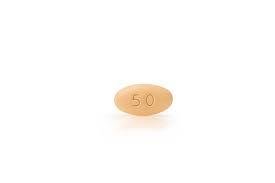Abemaciclib Disease Interactions
There are 6 disease interactions with abemaciclib.
Abemaciclib (applies to abemaciclib) hepatic dysfunction
Major Potential Hazard, Moderate plausibility. Applicable conditions: Liver Disease
The dosing frequency of abemaciclib should be reduced to once daily when it is administered to patients with severe hepatic impairment (Child-Pugh C). No dosage adjustments are necessary for patients with mild or moderate hepatic impairment (Child-Pugh A or B). Hepatotoxicity has been reported with the use of abemaciclib. It is recommended to monitor liver function tests prior to the start of therapy, every 2 weeks for the first 2 months, monthly for the next 2 months, and as clinically indicated. Dose interruption, dose reduction, dose discontinuation, or delay in starting treatment cycles is recommended for patients who develop persistent or recurrent Grade 2, or Grade 3 or 4, hepatic transaminase elevation.
Abemaciclib (applies to abemaciclib) diarrhea
Moderate Potential Hazard, Moderate plausibility. Applicable conditions: Dehydration, Infectious Diarrhea/Enterocolitis/Gastroenteritis
Diarrhea, sometimes associated with dehydration and infection, has occurred in patients receiving abemaciclib. Diarrhea incidence was greatest during the first month of abemaciclib dosing. Care should be exercised when treating patients with symptoms of diarrhea. Treatment discontinuation may be required for Grade 3 or 4 diarrhea, or diarrhea that requires hospitalization. Resume treatment at the next lower dose once toxicity resolves to <= Grade 1 diarrhea.
Abemaciclib (applies to abemaciclib) ILD
Moderate Potential Hazard, Moderate plausibility. Applicable conditions: Interstitial Pneumonitis
Patients treated with abemaciclib have reported severe, life-threatening, or fatal interstitial lung disease (ILD) and/or pneumonitis. It is recommended to monitor patients for pulmonary symptoms indicative of ILD/pneumonitis such as, hypoxia, cough, dyspnea, or interstitial infiltrates on radiologic exams. Dose interruption or dose reduction is recommended for patients who develop persistent or recurrent Grade 2 ILD/pneumonitis. Permanently discontinue therapy in all patients with Grade 3 or 4 ILD or pneumonitis.
Abemaciclib (applies to abemaciclib) neutropenia
Moderate Potential Hazard, Moderate plausibility. Applicable conditions: Fever
Neutropenia, including febrile neutropenia has occurred in patients receiving abemaciclib. Care should be exercised when prescribing this agent to patients with preexisting neutropenia. It is recommended to monitor complete blood counts prior to the start of therapy, every 2 weeks for the first 2 months, monthly for the next 2 months, and as clinically indicated. Dose interruption, dose reduction, or delay in starting treatment cycles is recommended for patients who develop Grade 3 or 4 neutropenia.
Abemaciclib (applies to abemaciclib) VTE
Moderate Potential Hazard, Moderate plausibility. Applicable conditions: Thrombotic/Thromboembolic Disorder
Venous thromboembolic events have been reported with the use of abemaciclib. Care should be exercised when using this agent in patients with risk factors or history of venous thromboembolic events. It is recommended to monitor patients for signs and symptoms of venous thrombosis and pulmonary embolism and treat as medically appropriate.
Multikinase inhibitors (applies to abemaciclib) lung toxicity
Moderate Potential Hazard, Moderate plausibility. Applicable conditions: Pulmonary Impairment
The use of certain multikinase inhibitors has been associated with pulmonary toxicity. Serious cases of interstitial lung disease (ILD), including fatal cases and interstitial pneumonitis or pulmonary fibrosis have been reported. Caution is recommended when using these agents in patients with a history of interstitial pneumonitis or pulmonary fibrosis or those patients presenting with acute onset of new or progressive unexplained pulmonary symptoms such as dyspnea, cough, and fever pending diagnostic evaluation. If ILD is confirmed, these agents should be permanently discontinued and appropriate measures should be instituted. Treatment should be immediately withheld in patients diagnosed with ILD/pneumonitis and permanently discontinued if no other potential causes of ILD/pneumonitis have been identified.
Switch to professional interaction data
Abemaciclib drug interactions
There are 358 drug interactions with abemaciclib.
Abemaciclib alcohol/food interactions
There is 1 alcohol/food interaction with abemaciclib.
More about abemaciclib
- abemaciclib consumer information
- Check interactions
- Compare alternatives
- Reviews (41)
- Side effects
- Dosage information
- During pregnancy
- Drug class: CDK 4/6 inhibitors
- Breastfeeding
- En español
Related treatment guides
Drug Interaction Classification
| Highly clinically significant. Avoid combinations; the risk of the interaction outweighs the benefit. | |
| Moderately clinically significant. Usually avoid combinations; use it only under special circumstances. | |
| Minimally clinically significant. Minimize risk; assess risk and consider an alternative drug, take steps to circumvent the interaction risk and/or institute a monitoring plan. | |
| No interaction information available. |
See also:
Further information
Always consult your healthcare provider to ensure the information displayed on this page applies to your personal circumstances.


